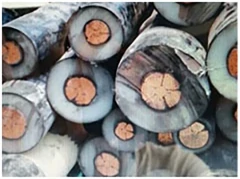

nov . 11, 2024 12:45 Back to list
The Evolution and Impact of Big Metal Shredders in Recycling
In the ever-evolving landscape of waste management and recycling, big metal shredders play a pivotal role in transforming scrap metal into valuable resources. These colossal machines are designed to process large volumes of metal waste, making them a vital component of modern recycling operations. The significance of big metal shredders extends beyond mere functionality; they symbolize technological advancement in the recycling industry and underscore a growing commitment to sustainability.
Big metal shredders are engineered to handle various types of metal, including steel, aluminum, copper, and even electronics. Their operation involves several stages initially, large metal items, such as old vehicles, appliances, and industrial scrap, are fed into the shredder. Equipped with powerful rotating blades, the shredder effortlessly breaks down these items into manageable pieces. This process not only facilitates easier handling and transportation but also increases the overall surface area of the metal, making it more accessible for subsequent recycling processes.
The efficiency of big metal shredders is enhanced by their ability to separate ferrous from non-ferrous metals. After shredding, magnets are employed to extract iron and steel, thereby streamlining the recycling process. This separation is crucial because it allows recycling facilities to maximize the value of the recovered materials. Non-ferrous metals, which are often more valuable than their ferrous counterparts, can be further processed and sold to manufacturing companies, contributing significantly to the economy.
One of the primary benefits of using big metal shredders lies in their positive environmental impact. Metal recycling reduces the need for virgin materials, consequently lowering energy consumption and greenhouse gas emissions associated with mining and metal production. According to the American Iron and Steel Institute, recycling one ton of steel conserves 2,500 pounds of iron ore, 1,400 pounds of coal, and 120 pounds of limestone. Furthermore, recycling also helps prevent metal waste from ending up in landfills, thus addressing the growing concern of waste management.

Over the years, advancements in technology have significantly enhanced the efficiency and effectiveness of big metal shredders. Modern shredders are equipped with sophisticated control systems that allow for real-time monitoring and optimization of the shredding process. Innovations such as energy-efficient motors and smart sensors not only improve performance but also reduce operational costs, making shredding more sustainable. As a result, many recycling facilities are increasingly investing in newer models of metal shredders to bolster their productivity while minimizing their carbon footprint.
In addition to their ecological benefits, big metal shredders also contribute to job creation and economic growth. The recycling industry is a substantial sector that employs thousands of workers worldwide. From the labor involved in operating shredders to the downstream processes of sorting, transporting, and selling recycled metals, the entire recycling supply chain relies on skilled personnel. As the demand for recycled materials grows, so too does the need for an efficient workforce, further nourishing local economies.
As we look toward the future, the role of big metal shredders will undoubtedly become more integral to global sustainability efforts. Policymakers, industries, and consumers are increasingly recognizing the importance of recycling and the responsible management of resources. The continued development of advanced shredding technologies promises to further enhance recycling processes, ensuring that valuable metals are recovered and reused.
In conclusion, big metal shredders are much more than machines; they are vital instruments in the quest for a sustainable future. By efficiently processing metal waste, they reduce environmental impact, promote economic growth, and facilitate a more circular economy. As the recycling industry continues to innovate, the impact of big metal shredders will undoubtedly shape the landscape of resource management for years to come.
Latest news
Troubleshooting Common Eddy Separator Problems
NewsJul.04,2025
The Role of Metal Recycling Plants in Circular Economy
NewsJul.04,2025
The Impact of Recycling Line Pickers on Waste Management Costs
NewsJul.04,2025
Safety Features Every Metal Shredder Should Have
NewsJul.04,2025
How Industrial Shredders Improve Waste Management Systems
NewsJul.04,2025
How Cable Granulators Contribute to Sustainable Recycling
NewsJul.04,2025